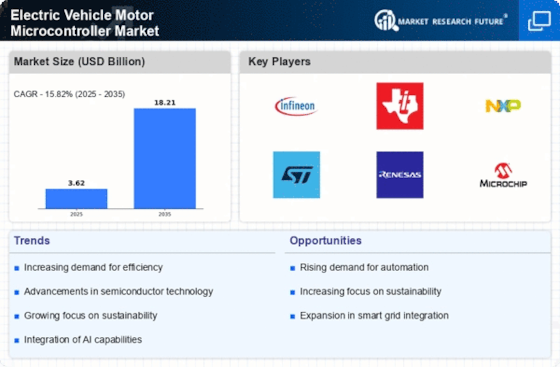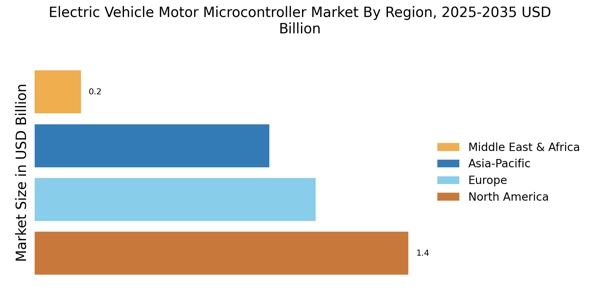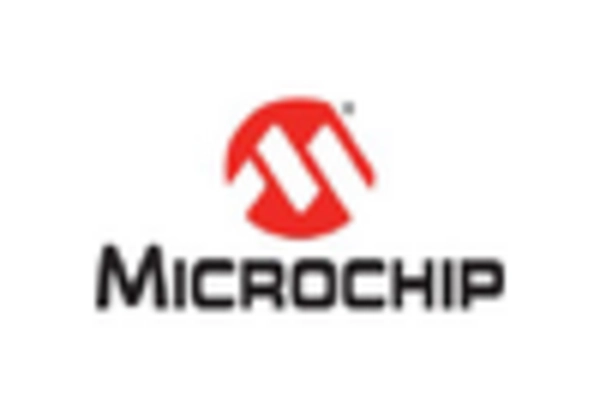Rising Demand for Electric Vehicles
The increasing consumer preference for electric vehicles (EVs) is a primary driver for the Electric Vehicle Motor Microcontroller Market. As more individuals and businesses seek sustainable transportation options, the demand for EVs continues to rise. According to recent data, the sales of electric vehicles have surged, with projections indicating a compound annual growth rate (CAGR) of over 20% in the coming years. This trend necessitates the development of advanced motor control systems, which are integral to the performance and efficiency of electric vehicles. Consequently, the Electric Vehicle Motor Microcontroller Market is poised for substantial growth as manufacturers strive to meet the evolving needs of the automotive sector.
Expansion of Charging Infrastructure
The expansion of electric vehicle charging infrastructure is a vital driver for the Electric Vehicle Motor Microcontroller Market. As more charging stations are established, consumer confidence in electric vehicles is likely to increase, leading to higher adoption rates. This growth in infrastructure not only supports the use of electric vehicles but also necessitates the development of advanced motor control systems that can optimize charging processes. Consequently, the Electric Vehicle Motor Microcontroller Market is expected to thrive as manufacturers respond to the growing need for efficient and reliable motor controllers that enhance the overall electric vehicle experience.
Government Initiatives and Incentives
Government policies aimed at promoting electric vehicle adoption are a crucial driver for the Electric Vehicle Motor Microcontroller Market. Various countries have implemented incentives such as tax rebates, subsidies, and grants to encourage consumers to purchase electric vehicles. These initiatives not only stimulate demand for EVs but also create a favorable environment for the development of supporting technologies, including motor microcontrollers. As governments continue to prioritize sustainability and reduce carbon emissions, the Electric Vehicle Motor Microcontroller Market is expected to benefit from increased investments and regulatory support, further accelerating market growth.
Growing Focus on Sustainable Transportation
The Electric Vehicle Motor Microcontroller Industry. As environmental concerns become more pronounced, both consumers and manufacturers are prioritizing eco-friendly alternatives. This trend is driving the demand for electric vehicles, which rely heavily on efficient motor control systems. The Electric Vehicle Motor Microcontroller Market is likely to expand as manufacturers seek to develop innovative solutions that align with sustainability goals. Furthermore, the increasing emphasis on reducing greenhouse gas emissions is prompting investments in electric vehicle technologies, thereby enhancing the market landscape for motor microcontrollers.
Technological Advancements in Microcontrollers
Technological innovations in microcontroller design and functionality are significantly influencing the Electric Vehicle Motor Microcontroller Market. The advent of more sophisticated microcontrollers, which offer enhanced processing power and energy efficiency, is enabling manufacturers to develop more effective motor control solutions. These advancements facilitate improved vehicle performance, including better acceleration, regenerative braking, and overall energy management. As the automotive industry increasingly adopts these cutting-edge technologies, the Electric Vehicle Motor Microcontroller Market is likely to experience robust growth, driven by the need for high-performance components that can support the latest electric vehicle models.
















